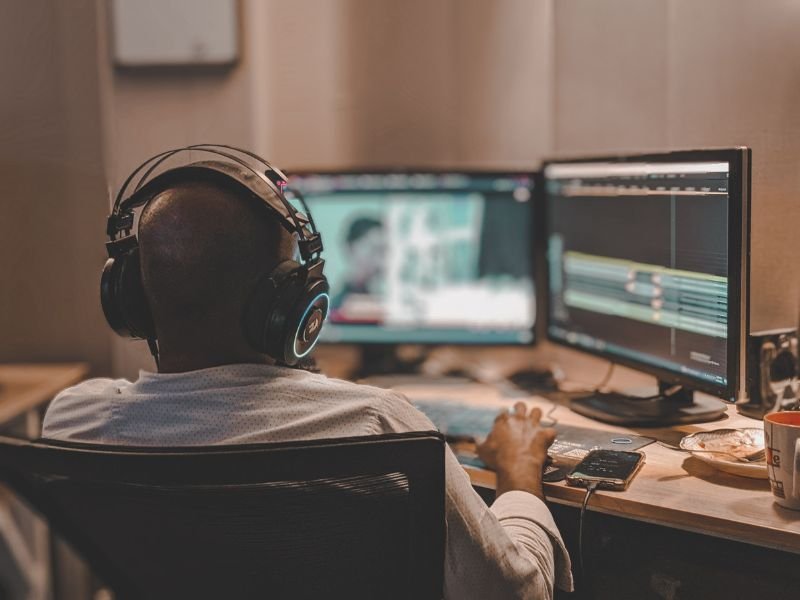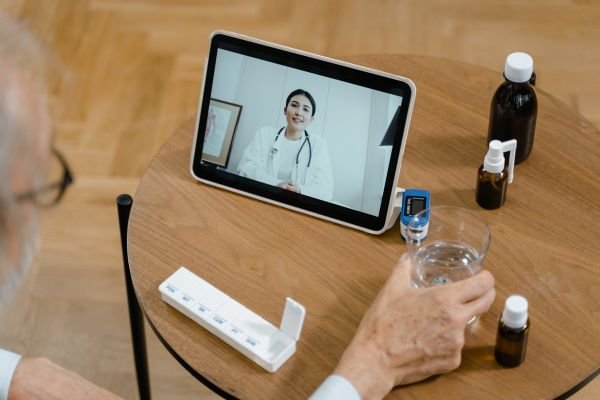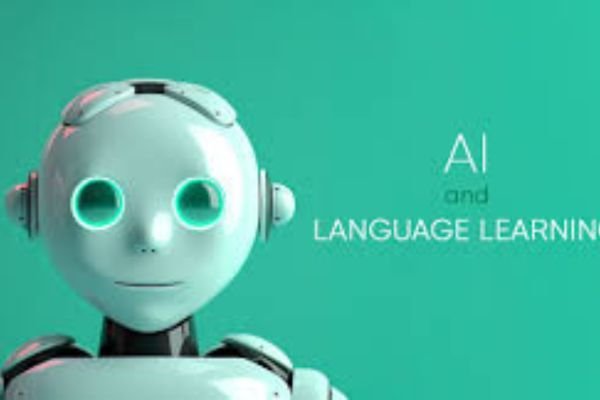The world of video content creation is undergoing a transformative shift, thanks to the rapid advancements in artificial intelligence (AI). AI-powered video apps are changing the way individuals and businesses produce, edit, and optimize videos, making high-quality content more accessible than ever before. These applications leverage machine learning, computer vision, and natural language processing to automate complex tasks, enhance creativity, and streamline workflows. From social media influencers to large-scale production studios, AI video apps are becoming indispensable tools in the digital content landscape.
One of the most significant advantages of AI video apps is their ability to reduce the time and effort required for video editing. Traditional editing processes often involve hours of manual work, but AI can automate tasks such as cutting, transitions, color correction, and even scene selection. Additionally, AI-driven features like automatic subtitling, voice synthesis, and background removal empower creators to produce professional-grade videos without needing extensive technical expertise. As these tools continue to evolve, they are democratizing video production, allowing even beginners to craft visually stunning content.
Beyond editing, AI video apps are also enhancing personalization and engagement. Advanced algorithms analyze viewer preferences and behavior to recommend optimal video lengths, styles, and even thumbnail designs. Some apps even use generative AI to create entirely new video content based on text prompts, opening up endless possibilities for marketers, educators, and storytellers. As AI technology progresses, we can expect even more innovative features that will further redefine the boundaries of video creation and consumption.
7 Best AI Apps for Video Editing & Enhancement
AI-powered video tools can transform your editing process, automate tasks, and enhance quality. Here are the top AI apps for videos:
1. Runway ML (https://runwayml.com)

A powerful AI video editor with features like green screen removal, motion tracking, and AI-generated effects. Great for professionals and beginners.
2. Pictory (https://pictory.ai)
Turn long videos into short clips automatically with AI. Perfect for content creators who need quick social media edits.
3. Descript (https://www.descript.com)
Edit videos by editing text transcripts. AI removes filler words, enhances audio, and even generates AI voiceovers.
4. Synthesia (https://www.synthesia.io)

Create AI-generated videos with virtual avatars and multilingual voiceovers—no camera or actors needed!
5. Adobe Premiere Pro (with AI features) (https://www.adobe.com/premiere-pro.html)
Uses Adobe Sensei AI for auto-reframing, color correction, and speech-to-text for captions.
6. Lumen5 (https://lumen5.com)

Converts blog posts into engaging videos using AI, ideal for marketers and social media managers.
7. VEED.io (https://www.veed.io)
AI-powered auto-subtitles, background removal, and noise cancellation for quick, professional edits.
The Rise of AI in Video Editing
Gone are the days when video editing was a labor-intensive process reserved for professionals with expensive software. AI-powered video editing apps have made it possible for anyone with a smartphone or computer to produce polished videos in minutes. These apps use machine learning to recognize patterns in footage, automatically suggesting the best cuts, transitions, and effects. For instance, some AI tools can detect faces and objects, ensuring smooth transitions and optimal framing without manual intervention.
Another groundbreaking feature of AI video apps is their ability to enhance audio quality. Background noise reduction, automatic voice leveling, and even AI-generated voiceovers are now standard in many applications. This is particularly useful for content creators who film in less-than-ideal acoustic environments. Furthermore, AI can analyze speech and generate accurate subtitles in multiple languages, improving accessibility and expanding a video’s reach to global audiences.
The integration of AI in video editing also extends to stylistic enhancements. Apps can apply cinematic filters, adjust lighting, and even simulate different camera movements based on the content’s mood. Some platforms go a step further by using AI to generate entirely new visuals or animations based on user inputs. As these technologies become more sophisticated, the line between human and AI-generated content will continue to blur, offering creators unprecedented creative freedom.
AI-Driven Personalization and Engagement
In today’s fast-paced digital world, capturing and retaining viewer attention is more challenging than ever. AI video apps address this by leveraging data analytics to personalize content for different audiences. By analyzing viewer interactions, these tools can recommend the most engaging segments of a video, suggest optimal posting times, and even predict trending topics. This level of insight allows creators to tailor their content for maximum impact.
Thumbnail optimization is another area where AI excels. Many apps now use A/B testing and machine learning to determine which thumbnails generate the highest click-through rates. Some even generate multiple thumbnail options automatically, allowing creators to choose the most effective one. Additionally, AI can analyze video scripts and metadata to recommend relevant tags, titles, and descriptions, improving discoverability on platforms like YouTube and TikTok.
Beyond analytics, AI is also being used to create interactive video experiences. Some apps enable dynamic content adjustments based on real-time viewer feedback, such as changing storylines or offering personalized recommendations. For businesses, this means more effective marketing campaigns, while educators can use AI to create adaptive learning videos that respond to students’ progress. As personalization becomes increasingly important in digital content, AI video apps will play a crucial role in helping creators stay ahead of the curve.
Generative AI and the Future of Video Creation
One of the most exciting developments in AI video technology is the emergence of generative AI, which can create entirely new video content from text prompts. Platforms like OpenAI’s Sora and Runway ML allow users to generate realistic video clips by simply describing what they want. This technology is still in its early stages, but it has already shown immense potential for industries such as advertising, entertainment, and education.
Generative AI is also revolutionizing stock footage. Instead of sifting through libraries for the perfect clip, creators can now generate custom visuals on demand. This not only saves time but also ensures that the content is unique and tailored to specific needs. Additionally, AI can assist in scriptwriting by generating dialogue, scene descriptions, and even entire storyboards based on a few keywords.
Looking ahead, the possibilities for generative AI in video creation are virtually limitless. Imagine AI-powered virtual actors, entirely AI-generated films, or real-time video synthesis for live broadcasts. While ethical concerns around deepfakes and misinformation remain, the creative potential of these tools is undeniable. As generative AI continues to improve, it will further empower creators to bring their visions to life in ways previously unimaginable.
Ethical Considerations and Challenges
Despite the many benefits of AI video apps, their rapid adoption also raises important ethical questions. Deepfake technology, for instance, can be used to create highly realistic but fabricated videos, posing risks for misinformation and identity theft. Ensuring that AI-generated content is used responsibly will require robust regulations, watermarking systems, and public awareness campaigns.
Another challenge is the potential loss of jobs in traditional video production roles. As AI automates more aspects of editing and content creation, professionals in the industry may need to adapt by developing new skills that complement AI tools rather than compete with them. Additionally, biases in AI algorithms—such as those related to race, gender, or culture—must be addressed to ensure fair and inclusive content generation.
Transparency will also be key in maintaining trust between creators and audiences. Viewers have the right to know whether a video was entirely human-made or assisted by AI. Platforms may need to implement disclosure policies to distinguish between different types of content. As AI continues to evolve, striking a balance between innovation and ethical responsibility will be crucial for the sustainable growth of AI video applications.
AI Video Apps for Businesses and Marketing
The corporate world is rapidly adopting AI video apps to enhance marketing strategies, streamline communication, and improve customer engagement. Businesses of all sizes are leveraging these tools to create compelling advertisements, training videos, and personalized customer experiences without the need for expensive production teams. AI-powered video platforms enable companies to generate high-quality content at scale, ensuring brand consistency while reducing costs and turnaround times.
One of the most impactful applications of AI in business videos is automated ad creation. Platforms like VidMob and Pictory use AI to analyze marketing data and generate optimized video ads tailored to specific audiences. These tools can repurpose long-form content—such as webinars or blog posts—into short, engaging clips perfect for social media. AI also assists in A/B testing different versions of a video to determine which performs best, allowing marketers to refine their campaigns in real time.
Beyond advertising, AI video apps are transforming internal communications. Employee training videos, onboarding materials, and corporate announcements can now be generated quickly with AI-driven avatars and voice synthesis. This is particularly useful for multinational companies that need content in multiple languages. AI can automatically dub videos or generate subtitles, ensuring seamless communication across global teams. As businesses continue to embrace remote work, AI-powered video solutions will play an increasingly vital role in maintaining productivity and engagement.
AI in Social Media and Short-Form Video Content
The explosive growth of short-form video platforms like TikTok, Instagram Reels, and YouTube Shorts has made AI video editing tools essential for creators and influencers. These apps help users quickly edit, enhance, and optimize their videos to maximize engagement. AI-driven features such as auto-captioning, beat-synced transitions, and smart cropping ensure that content is perfectly formatted for each platform’s algorithm.
One of the biggest challenges for social media creators is maintaining a consistent posting schedule. AI video apps address this by offering automated content suggestions and batch editing. For example, some tools can analyze trending sounds, hashtags, and video styles, then recommend ways to incorporate them into new content. Others can generate multiple video variations from a single recording, allowing creators to test different hooks and thumbnails to see what resonates best with their audience.
Additionally, AI is making it easier for influencers and brands to localize content for different regions. Language translation tools can automatically generate subtitles or even dub videos in multiple languages, helping creators expand their reach without manual editing. As social media algorithms prioritize video content more than ever, AI-powered tools will remain indispensable for staying competitive in the fast-paced world of digital content.
AI for Educational and Training Videos
The education sector is experiencing a revolution thanks to AI-powered video apps. Teachers, trainers, and e-learning platforms are using these tools to create interactive and adaptive learning experiences. AI can automatically summarize lectures, generate quizzes from video content, and even provide real-time feedback to students based on their engagement levels. This makes learning more dynamic and personalized.
One of the most exciting developments is AI-generated virtual tutors. Some platforms use natural language processing to create lifelike avatars that explain complex topics in simple terms. These virtual instructors can adapt their teaching style based on student responses, ensuring that each learner receives a customized experience. Additionally, AI can analyze student performance data to recommend supplementary videos or exercises, helping educators identify and address knowledge gaps more effectively.
Corporate training programs are also benefiting from AI video solutions. Instead of relying on static PowerPoint presentations, companies can now use AI to convert training manuals into engaging video modules with animations, voiceovers, and interactive elements. Some platforms even use AI to simulate real-world scenarios, allowing employees to practice skills in a risk-free virtual environment. As remote learning and digital training become the norm, AI-powered video tools will continue to reshape education and professional development.
The Future of AI Video Apps: What’s Next?
The rapid evolution of AI video technology suggests an even more transformative future. Real-time AI video editing is already emerging, allowing creators to apply effects, filters, and enhancements instantaneously during live streams. This could revolutionize industries like gaming, live sports broadcasting, and virtual events, where instant production quality is crucial.
Another frontier is AI-powered 3D video generation. Some experimental platforms are exploring ways to convert 2D footage into 3D environments, opening new possibilities for virtual reality (VR) and augmented reality (AR) content. Imagine watching a concert or sports game in 3D from multiple angles, all generated by AI. This could redefine entertainment, tourism, and even real estate marketing.
Finally, neural rendering—a technique where AI reconstructs high-quality video from limited data—could drastically reduce storage and bandwidth requirements for video platforms. This would make high-definition streaming more accessible, even in low-connectivity regions. As AI continues to merge with other emerging technologies like 5G and blockchain, the future of video creation and consumption will be more immersive, efficient, and interactive than ever before.
Conclusion
AI video apps are no longer a futuristic concept—they are here, and they are reshaping industries across the board. From simplifying video editing for beginners to enabling hyper-personalized marketing campaigns, these tools are democratizing high-quality content creation. Businesses, educators, and social media influencers who adopt AI video technology early will have a significant competitive advantage in capturing audience attention and delivering impactful messages.
However, as with any powerful technology, responsible usage is key. The potential for misuse—such as deepfakes and AI-generated misinformation—means that ethical guidelines and regulatory frameworks must evolve alongside the technology. Transparency in AI-generated content, watermarking systems, and public education will be crucial in maintaining trust in digital media.
Ultimately, AI video apps are not replacing human creativity but enhancing it. They eliminate tedious tasks, allowing creators to focus on storytelling, innovation, and emotional connection. As AI continues to advance, the line between human and machine-generated content will blur, but the most compelling videos will always be those that resonate on a human level. The future of video is intelligent, adaptive, and limitless—and it’s just getting started.






